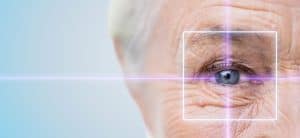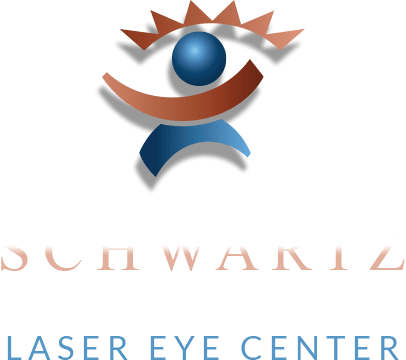What is Macular Degeneration?
 Macular degeneration is a common eye disorder that affects central vision, making it difficult for those with the disease to see things that are directly in front of them. It occurs when aging leads to damage to the macula, which is the central part of the retina. Individuals with macular degeneration do not go completely blind, as their peripheral vision remains. The condition can develop in only one eye or both and can vary in severity between the eyes.
Macular degeneration is a common eye disorder that affects central vision, making it difficult for those with the disease to see things that are directly in front of them. It occurs when aging leads to damage to the macula, which is the central part of the retina. Individuals with macular degeneration do not go completely blind, as their peripheral vision remains. The condition can develop in only one eye or both and can vary in severity between the eyes.
Symptoms
Often, people with macular degeneration do not notice symptoms until the condition has progressed. The following symptoms are indicative of macular degeneration:
- Decreased vision in low-light environments
- Blurry vision
- Issues seeing colors
- Dark spots in your visual field
- Straight lines that appear curved
- Difficulty recognizing faces
Dry and Wet Macular Degeneration
Macular degeneration is categorized by type:
Dry macular degeneration: Dry macular degeneration is the most common form of the disease. It occurs when protein deposits lead to buildup, which dries and thins the macula.
Wet macular degeneration: This form of macular degeneration is the result of fragile blood vessels breaking and leading blood and fluid into the macula. This leads to severe damage to vision that occurs quickly.
Stages of Macular Degeneration
Macular degeneration occurs in stages and progresses in severity. Even though many vision changes are not often observed by the patient until later stages, our skilled team of experts can detect signs of the disease during examinations.
Early stage: The macula changes in the early stages, signaling the presence of the disease. However, vision is not affected.
Intermediate stage: Patients at this stage may notice blurred or wavy vision.
Advanced stage: Late-stage macular degeneration is when central vision has failed completely.
Am I At Risk?
Macular degeneration can be inherited, so if you have a family history of the disease, you could be at increased risk. Also, eating a diet that is high in saturated fat, which is found in foods such as butter and cheese, is a risk factor for macular degeneration. Other factors include:
- Smoking
- Being over 50
- High blood pressure
- High cholesterol levels
- Heart disease
Diagnosis and Treatment
During an eye examination, our experts will check for changes to your retina and macula. The following tests may be required:
Amsler grid test: This grid is composed of straight lines and can help patients notice distortion, blurred or blank spots in vision. A great deal of distortion could indicate that you have macular degeneration.
Dilated eye test: Special eye drops are used to dilate the pupils, allowing our doctors to look into the eye.
Optical coherence tomography: Optical coherence tomography (OCT) is another way to observe the retina. It involves scanning the retina with a special machine to produce detailed images of the macula.
There is no cure for macular degeneration, but the condition can be managed with dietary changes, including taking supplements and consuming foods, such as dark leafy greens and fish, that are rich in nutrients.
Schedule an Appointment
The loss of vision that is related to macular degeneration can significantly impact a person’s quality of life. Learn more about managing this condition by scheduling an appointment at Schwartz Laser Eye Center. Contact our office via phone or online form.




